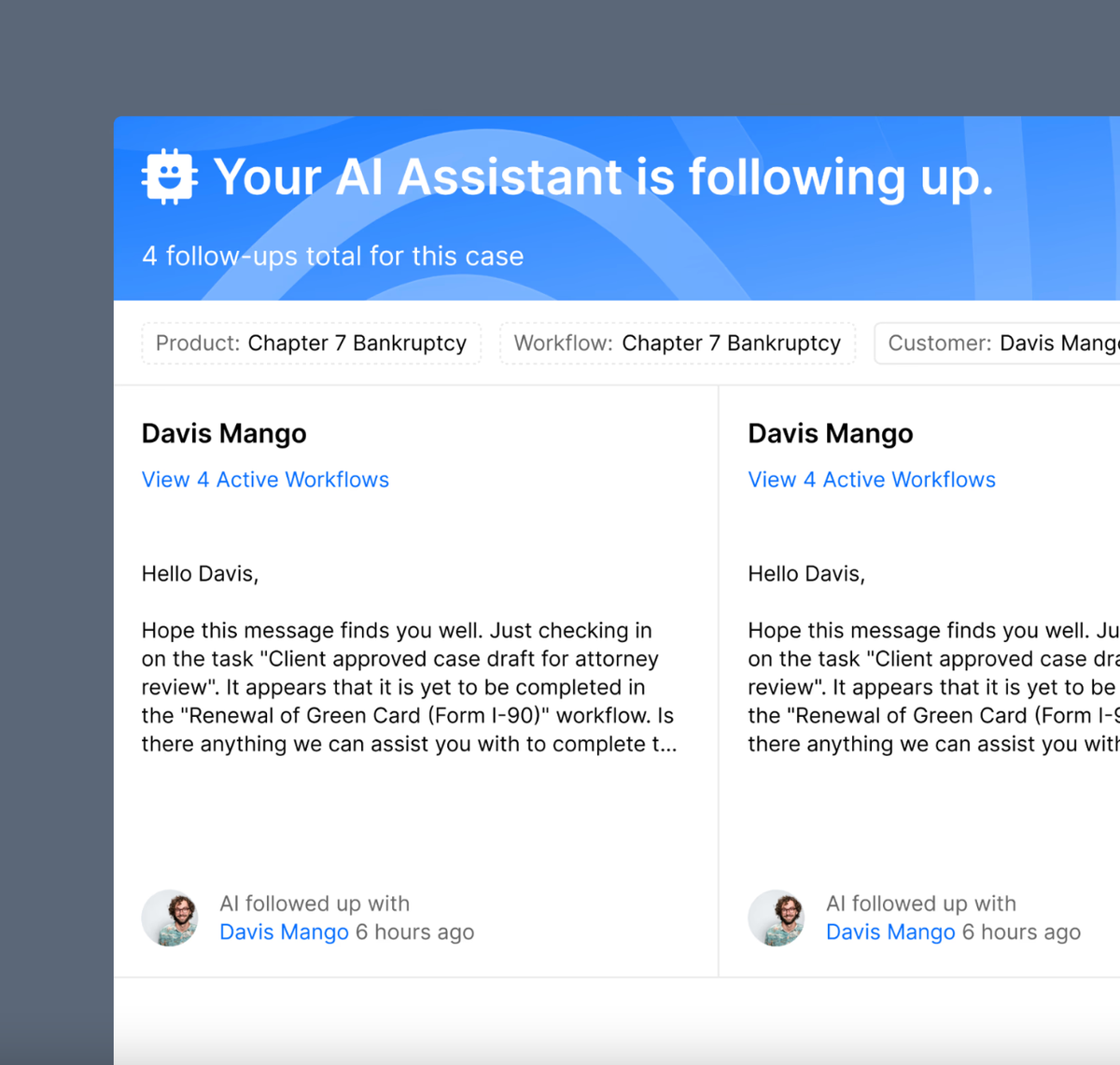What Is a CRM? 5 Benefits for Your Law Firm
A content relationship management system is useful for law firms. Here's what to consider.


The Modern Law Firm series delves into how AI can streamline your law firm — whether it’s by saving you time and money, eliminating mistakes and redundancies or making your workflow more efficient.

Organizational skills go a long way in the legal world. Being able to make progress on multiple cases at once and working with other stakeholders requires the utmost care and attention to detail. However, not everyone can remain orderly when so many things happen simultaneously.
Fortunately, there are tools to keep you from descending into chaos. For lawyers, a customer relationship management (CRM) system is essential. But what is a CRM system? Read on to learn more.
What Is a CRM?
A customer relationship management (CRM) system is a type of technology that helps you organize customer information and interactions. Through a CRM, you can strengthen relationships with your customers.
Using your CRM, you can segment your clients by where they are in the process and send them personalized emails that can be helpful to them. For example, if you’ve just gone through the intake process with a client, you can send them an email that lays out the next steps that will take place so they know exactly what to expect.
CRMs in the Legal Field
CRMs are not new in the legal industry, but lawyers have a complicated relationship with these tools. According to the 2023 State of CRM at Law Firms Industry Report, 85% of the 71 law firms surveyed use CRMs. However, of those, only 21% of law firms find the platforms highly effective. The best use of a CRM for 32% of lawyers was for contact management.
The survey also found that just because these firms have these platforms doesn’t mean lawyers are using them. About 44% of respondents use Microsoft Excel for sales pipeline management. Others used paper notes and Outlook to organize this information. However, these methods require more manual labor.
5 Benefits of a CRM for Your Law Firm
A CRM has many benefits for a law firm, including:
1. A Centralized Hub
Instead of using different systems to track your clients, a CRM lets you store contact information, case progress, and more in one place. This can keep you on task, as you juggle different clients.
2. Automation
A CRM can take care of monotonous tasks, such as reaching out to a client to remind them to fill out information. This can save you time and let you focus on the things that require more attention and energy.
3. Stronger Client Relationships
A customer relationship management system can help you create better relationships with your clients. As the American Bar Association states, “These systems are not mere repositories of client information; they are dynamic platforms that facilitate personalized communication at scale. By leveraging data on client preference and history, firms can tailor their outreach, ensuring that every email, newsletter, or social media post resonates on a personal level. This bespoke approach to client engagement fosters stronger relationships, enhancing client retention and attracting new business through word-of-mouth and targeted marketing campaigns.”
4. Asynchronous Work
Since CRMs store documents in a digital format, you can collaborate with other team members or clients asynchronously. This lets you remain flexible for clients who may not have time to spare during regular business hours.
5. Data
CRMs provide data and insights on clients and prospective clients. For example, if you see that you consistently don’t convert interested parties after a specific step, you can take time to assess why it’s not working and find ways to improve so you can turn more people into clients.
What to Look for in a CRM for Your Law Firm
As the 2023 State of CRM report notes, just because a law firm pays for a customer relationship management platform doesnt mean it’s useful. A good CRM:
Grows With Your Firm
A CRM should grow with your firm. This means it can support as many clients as you need. Some might not even charge you an additional fee as you continue to grow, which can be useful for your budget.
Offers Support
While your CRM should feel intuitive, there are parts that might require you seeking help. In those cases, your chosen platform should help you navigate challenges. For example, if you are a law firm that is modernizing, a CRM platform that offers to train your team can help you quickly integrate these tools into your workflow.
Enhances Lead-generation Efforts
Your CRM should help you nurture relationships with leads. By sending them updates or more information, you can engage them and help them become clients.
Follows Up with Clients
It should also continue to engage with clients when you’re working with them so that you can continue to build that relationship. Providing regular updates on their case can instill trust in clients.
The Noodle Solution
Noodle is an all-in-one solution that provides end-to-end case management. It can:
- Store client information
- Onboard clients
- Send and manage client retainers
- Schedule meetings
- Send reminders
- Assign tasks to team members and clients
- Follow-up with clients
- Create invoices
With all these tasks covered, you can focus on doing the work that will help you produce successful results for your clients.
